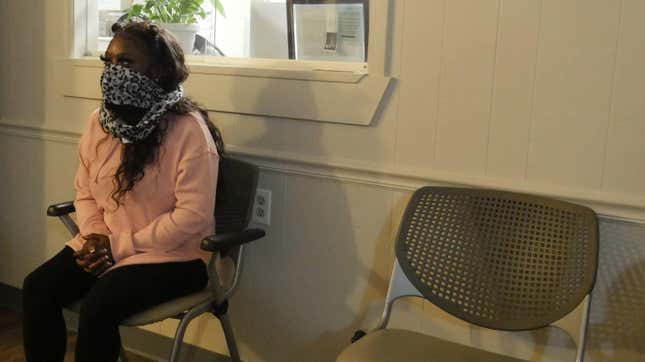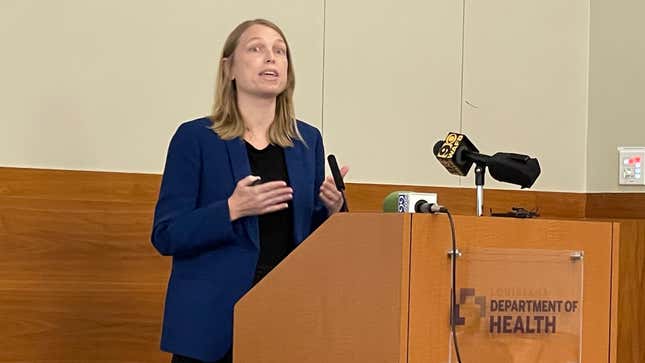Patients and Doctors Describe ‘Atmosphere of Terror’ at Emotional Louisiana Abortion Hearing
Zero safe and legal abortions have been reported in the state since August 1, after a near-total ban went into effect. In June, there were 551.
In Depth

A public abortion hearing in Baton Rouge, Louisiana, to debate the list of conditions that qualify a pregnancy as medically futile turned into an emotional open mic event, featuring intimate horror stories by doctors and patients alike.
Katie Darling, who’s currently running for Congress against Steve Scalise and gave birth in her campaign ad, got choked up while sharing her personal experiences at the hearing. “Something I haven’t shared until now is I have been pregnant seven times, and I have two living children,” she said. “I haven’t shared that because it’s very personal and private. We don’t owe the public our most intimate and private moments. But I’m here to share it because it matters right now.”
Darling said she remembers being “terrified” this summer when Roe was overturned. “I’ve had emergencies. I’ve been in ambulances. I was bleeding out on my living room floor not long ago, and I needed to call 911 to get help. When I was pregnant with my son, I was worried that could happen again. And that my doctor wouldn’t know if they could care for me.”
“I am a person whose condition doesn’t have a name,” said Darling. “I’m here to advocate that we throw this list out the door.” She added, “Pregnancy is the condition which qualifies a person for an abortion in consultation with their doctor, based on science.”
After Roe was overturned, a back-and-forth legal battle ensued between the state and abortion providers about Louisiana’s trigger bans, which critics called “unconstitutionally vague.” Nevertheless, the abortion ban went into effect on Aug. 1, and horrifying stories have poured out of the state, including one woman who had to travel 1,400 miles for an abortion despite the fact that her fetus was missing much of its skull.
The list as it exists has created an atmosphere of terror among my colleagues.
A representative for the Louisiana Department of Health told me there have been “zero induced terminations of pregnancy reported to the state” since that date–meaning not one legal and safe reported abortion since the trigger ban went into effect. For context, in June of this year alone, there were 551 abortions reported to the state. Last year, there were 7,444 reported abortions total.
There are no exceptions in Louisiana’s ban for rape and incest and only limited exceptions to save a pregnant patient’s life or when the fetus would be incapable of sustaining life after birth. For the latter exception, the Louisiana Department of Health initially released a list of 24 conditions that would render the fetus “medically futile,” which is not a medical term, but one used by the state’s anti-abortion legislators. The 25th item on the list is a broad exception for other kinds of genetic and chromosomal anomalies.
The rules state that two physicians need to certify that the fetus would be unable to survive birth in order for any of these conditions to be considered legal reasons for an abortion. Multiple doctors today spoke about how onerous this is, particularly in the midst of a physician shortage or in areas of Louisiana that are obstetric deserts.
“I am here to beg for an expansion of this LDH list as well as the addition of legal protections for physicians,” said emergency physician Nina Breakstone, stressing that her OBGYN colleagues are petrified of going to prison for helping people. “The list as it exists has created an atmosphere of terror among my colleagues.”
-

-

-

-

-

-

-

-

-

-

-

-

-

-

-

-

-

-

-

-

-

-

-

-

-

-

-

-

-

-

-

-

-

-

-

-

-

-

-

-









































